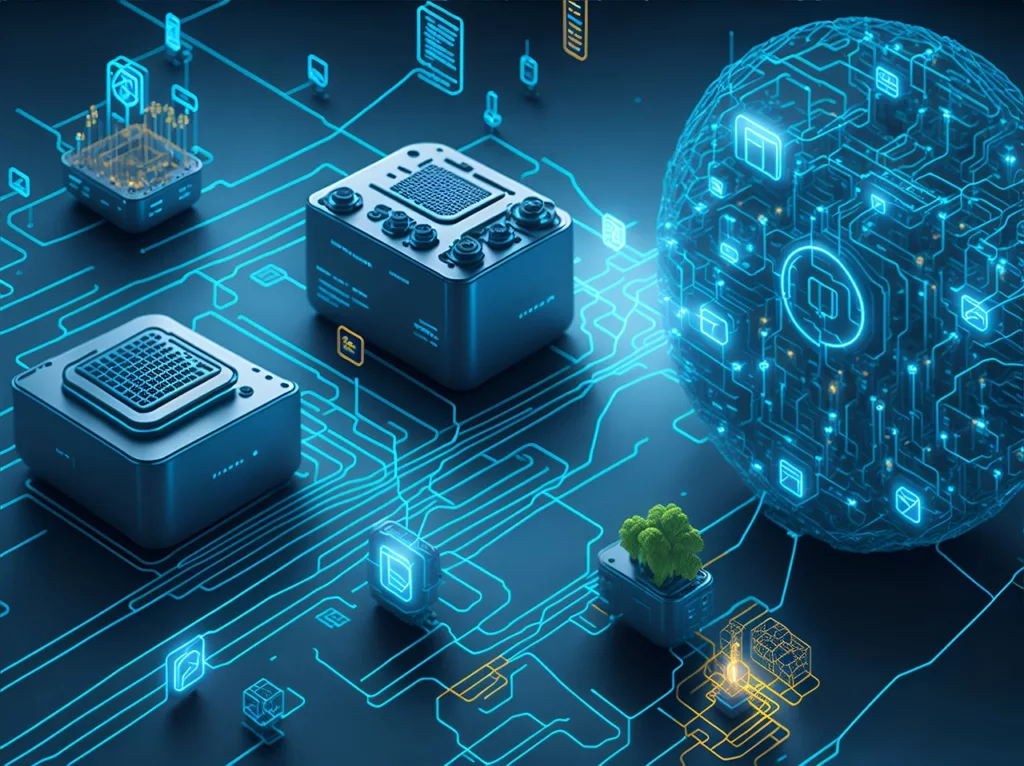“In the realm of artificial intelligence (AI), the term “”Edge AI”” has been gaining significant attention and recognition. But what exactly is Edge AI, and how is it revolutionizing the AI landscape? In this article, we will delve into the world of Edge AI, its applications, and its profound impact on various industries.
Defining Edge AI
Edge AI refers to the deployment of artificial intelligence algorithms and models directly on edge devices, such as smartphones, IoT devices, and embedded systems, instead of relying on centralized cloud servers. This decentralization of AI processing enables real-time data analysis and decision-making, bringing intelligence closer to the data source.
Key Advantages of Edge AI
1. Low Latency: Edge AI significantly reduces data transmission delays, making it ideal for applications that require real-time responses, such as autonomous vehicles and industrial automation.
2. Privacy and Security: Since data remains on the edge device, there is enhanced privacy and security, as sensitive information doesn’t need to be sent to the cloud.
3. Offline Functionality: Edge AI allows devices to perform AI tasks even when not connected to the internet, enhancing usability and reliability.
4. Bandwidth Efficiency: By processing data locally, Edge AI reduces the strain on network bandwidth, making it cost-effective.
Applications of Edge AI
Edge AI has a wide range of applications across various industries:
1. Healthcare: Wearable devices equipped with Edge AI can monitor vital signs and detect health anomalies in real-time.
2. Smart Cities: Edge AI is used for traffic management, surveillance, and optimizing resource allocation in smart city initiatives.
3. Manufacturing: Industrial robots equipped with Edge AI can perform complex tasks with precision and adapt to changing conditions.
4. Retail: Edge AI enhances customer experiences through personalized recommendations and cashier-less checkout systems.
Challenges and Considerations
While Edge AI offers numerous benefits, it also presents challenges, such as limited computing resources on edge devices and the need for efficient model optimization. Additionally, ensuring data privacy and security on decentralized devices remains a priority.
The Future of Edge AI
As the Internet of Things (IoT) continues to grow and demand for real-time processing increases, Edge AI will play a pivotal role in shaping the future of AI applications. Its ability to provide intelligence at the edge is poised to revolutionize industries, making processes more efficient, secure, and responsive.
Edge AI represents a significant leap forward in the field of artificial intelligence. By bringing intelligence closer to where data is generated, it opens up new possibilities for AI applications and has the potential to transform industries across the board.

